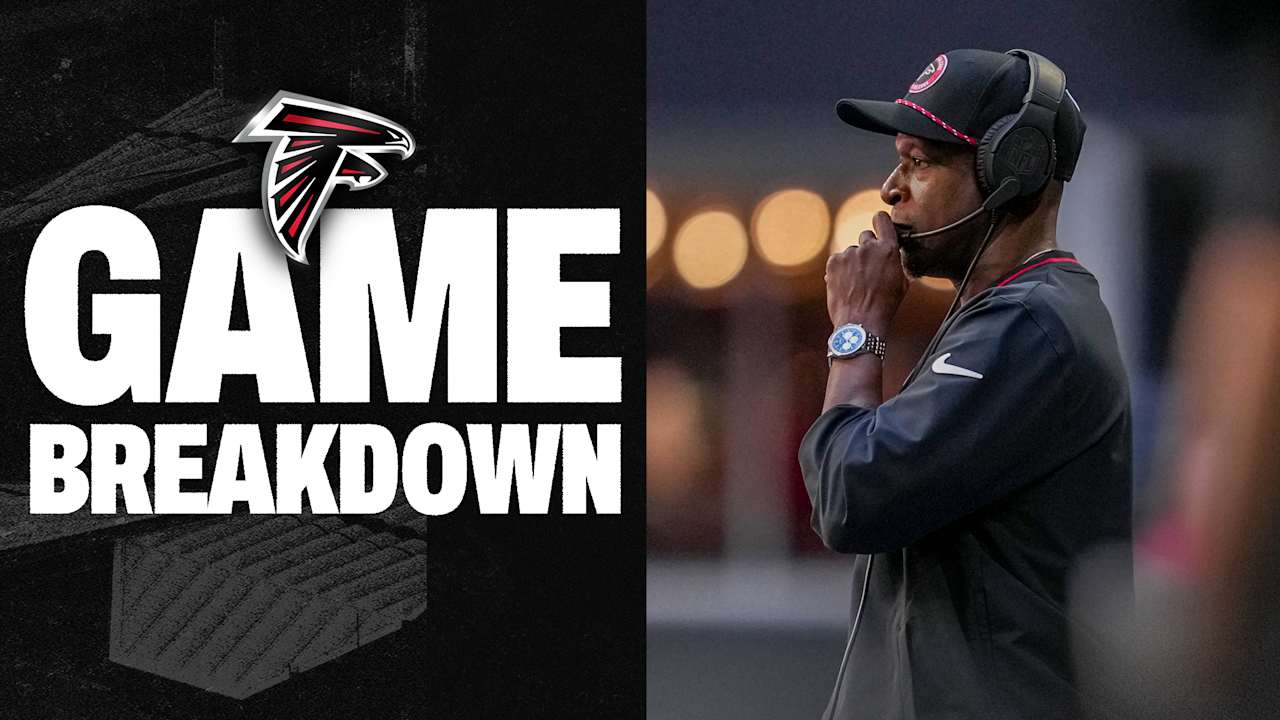Penalties proved to be an issue
Penalties and miscues hindered the Falcons at the start of the season, and they returned against the Seahawks. Atlanta committed nine penalties setting them back 72 yards. The timing of those penalties was impactful, stalling drives for the Falcons’ offense and keeping the Seahawks’ drives alive.
For comparison, the Falcons had only four penalties in their win against the Panthers last week. Penalties were a factor for Atlanta from the very start. Three flags were thrown for false starts against three different players on the Falcons’ opening possession, including back-to-back penalties on third down.
The Falcons got the penalty yardage from the first flag back on a 10-yard reception to Kyle Pitts that turned a 1st-and-15 into a second and manageable. But then the back-to-back penalties forced a punt after a failed third-down conversion. Atlanta’s offense didn’t find a consistent rhythm throughout the game, and penalties played a big part in that.
Falcons got a sack, but gave up explosive plays
Coming into the matchup the Falcons’ defense had been among the best in the league at containing explosive plays through the air. Seattle’s No. 1 passing offense posed a threat and took advantage, hitting multiple big plays downfield. The Seahawks finished the game with 236 total passing yards, which did fall shy of their 276.7 season average, but they largely ran the ball in the fourth quarter with a lead in hand.
Smith spread the ball around to six different receivers, four had receptions of at least 15 yards. After not registering a sack in Week 6 against the Carolina Panthers, the Falcons generated consistent pressure on Seahawks quarterback Geno Smith and managed to get him on the ground. James Smith-Williams, who started for injured outside linebacker Lorenzo Carter, recorded a sack for a 6-yard loss in the second quarter. Defensive tackle Grady Jarrett also pressured Smith multiple times, but he did not have a sack in the game.
All told, some of the Seahawks’ biggest plays in the game came when Smith was under pressure but managed to slip away from Falcons’ defenders. As the defense prepares for another important matchup next week, its ability to get to the quarterback will once again be a topic of conversation.
Injuries to the offensive line
Left guard Matthew Bergeron and center Ryan Neuzil left the game after sustaining injuries. Neuzil was accompanied by trainers as he walked off the field under his own power in the second quarter, and third-string center Matt Hennessy, who started 22 games for the Falcons from 2020-22 entered the game. The substitution didn’t slow down Atlanta’s rushing attack, though, as Bijan Robinson scored the Falcons’ first touchdown of the game later on the same drive.
Neuzil returned later in the second quarter after he was evaluated for a possible head injury. Starter Drew Dalman went down with an ankle injury in Week 3 and was subsequently placed on injured reserve. Neuzil has been starting for the Falcons since. Bergeron left the game on the Falcons’ first drive of the second half and was evaluated for a possible head injury. He was cleared for a possible concussion, but he did not return to the game due to a neck injury. Reserve left guard Kyle Hinton played the remainder of the action for Atlanta’s offense.
Bijan Robinson matches rookie rushing touchdown total
In his rookie season, Bijan Robinson scored four rushing touchdowns. It took only seven games for Robinson to match that total in his second year. He scored the touchdown on a 5-yard run in the second quarter; it was his third in the previous two games. Robinson finished the game with 143 total yards — 103 rushing and 40 receiving — and the touchdown against the Seahawks. The running back broke away for multiple plays of 20 yards or more against Seattle’s defense, including gains of 26 yards as a runner and receiver.
In just the first half, Robinson recorded 80 of his total 103 rushing yards. Robinson also averaged an impressive 4.9 yards per carry. Tyler Allgeier added 36 yards to the Falcons’ 155 total rushing yards.
Source link
